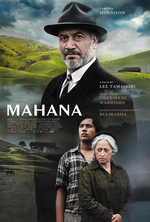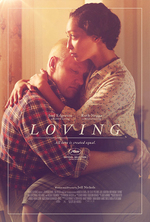Film Screening 10th June, 2017

Mahana
7:00 PM, 10th June, 2017
- M
- 103 mins
- 2016
- Lee Tamahori
- Temuera Morrison, Akuhata Keefe, Akuhata Keefe, Nancy Brunning
Acclaimed director Lee Tamahori (Once Were Warriors) returns home to New Zealand for an evocative family drama based on Whale Rider author Witi Ihimaera's novel, Bulibasha.
In the 1960s, off the rural East coast of New Zealand, two Māori sheep-shearing families – the Mahanas and the Poatas – are sworn enemies and commercial rivals as they battle for supremacy in the shearing sheds and in their own hearts.
14-year-old Simeon (Akuhata Keefe) – the youngest son of the Mahana family – is troubled by the rivalry and sets out to unravel the truth behind the longstanding feud. In doing so, he inadvertently risks not just his own future prospects, but the ire of his traditionalist grandfather (Temuera Morrison) and the cohesion of their tight-knit society.

Loving
8:53 PM, 10th June, 2017
- PG
- 123 mins
- 2016
- Jeff Nichols
- Joel Edgerton, Ruth Negga, Marton Csokas, Michael Shannon
In case you’re a little allergic to sappiness and you’re thinking the title is a red flag (too Hallmark, too Oprah) – this is the story of a landmark legal case in the United States, and ‘Loving’ happened to be the last name of the two main people involved. I suppose some puns are just too good to resist.
Mildred and David Loving (Ruth Negga and Joel Edgerton) were a couple who were married in Washington, D.C. In their home and neighbouring state of Virginia, their marriage was illegal, because Mildred was black and David was white; so on returning home, they were arrested, and escaped prison sentences only by agreeing to exile. They appealed the decision against them and finally, eight years after their arrest, won in the Supreme Court in 1967.
The film is about loving and the law as well as the Lovings and the law, and in Jeff Nichols (Take Shelter, Mud, Midnight Special) has found the perfect director to prevent it from becoming either too saccharine or too strident. Nichols’s strange stories always seem to be telling themselves, and that works just as well when he’s venturing into territory less strange than his previous work – although that these laws existed in a Western country within living memory is strange enough.
Henry Fitzgerald